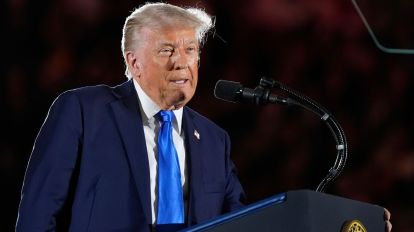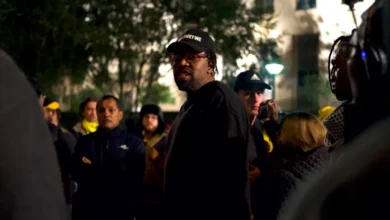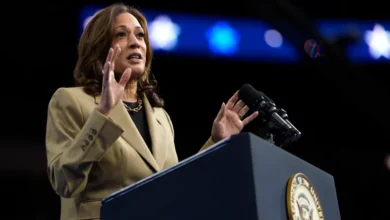Trump makes first judicial nomination since returning to White House

US President Donald Trump announced late on Thursday his first judicial nomination since returning to the White House as he moved to appoint a lawyer serving under Tennessee’s Republican attorney general to a seat on a federal appeals court.
Trump said in a social media post that he is nominating Whitney Hermandorfer, who has clerked for three members of the US Supreme Court’s conservative majority, to fill a vacancy on the Cincinnati-based 6th US Circuit Court of Appeals.
The seat became available for him to fill after Democratic President Joe Biden’s own nominee to the 6th Circuit failed to secure confirmation before he left office, following fierce opposition from Tennessee’s two Republican senators.
“Whitney is a Fighter who will inspire confidence in our Legal System,” Trump wrote on Truth Social.
The nomination was the first of what is expected to be more than 100 nominations Trump could make over the next four years to the federal courts, helping further put his conservative stamp on a judiciary that to his frustration has stymied key parts of his immigration and cost-cutting agenda.
Trump made 234 judicial appointments during his first term in office, including three members of the US Supreme Court’s 6-3 conservative majority.
As a member of Tennessee Attorney General Jonathan Skrmetti’s office, Hermandorfer defended the state’s near-total ban on abortion and challenged a Biden-era rule barring discrimination by schools and colleges against transgender students.
If confirmed by the US Senate, Hermandorfer would fill a seat on the 6th Circuit currently held by US Circuit Judge Jane Branstetter Stranch, an appointee of Democratic former President Barack Obama who last year notified Biden she planned to take senior status upon the confirmation of her successor.
Senior status is a form of semi-retirement for judges. Presidents may name new full-time judges to fill those judges’ seats.
Biden nominated one of Stranch’s former clerks, Karla Campbell of Tennessee, to fill her seat.
But after the November election, Senate Democrats and Republicans cut a deal that cleared the way for votes on about a dozen of Biden’s remaining trial court nominees in exchange for not pushing forward with four appellate court nominees, including Campbell.
Democratic Senate Majority Leader Chuck Schumer’s spokesperson at the time said all four lacked sufficient votes. Biden ultimately secured the confirmation of 235 judicial nominees, one more than Trump during his first term.










